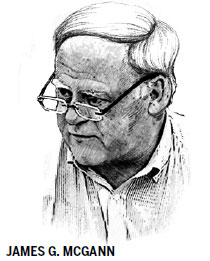Factual studies can help think tanks
By Li Yang (China Daily) Updated: 2015-07-25 09:19Q: The 1980s were boom time for Chinese think tanks. Compared with the 1980s, do you think Chinese think tanks today have more room for development?
 A: It is a delicate balance of having innovation and growth while ... wanting to control. I understand the reality of the challenge that is presented by time constraint and issue constraint. How do you manage the fear of chaos from the urgent specific threat of real problems that don't have long fields ... More pressure comes from rapidly decreasing resources. You have to come up with innovative ideas. And the challenge is how you manage that time constraint and also the fear of chaos in the political world ... People whisper it, but people don't talk about it and everybody knows that that's the issue ... You need the comfort level to be able to essentially talk about ideas and solutions more importantly.
A: It is a delicate balance of having innovation and growth while ... wanting to control. I understand the reality of the challenge that is presented by time constraint and issue constraint. How do you manage the fear of chaos from the urgent specific threat of real problems that don't have long fields ... More pressure comes from rapidly decreasing resources. You have to come up with innovative ideas. And the challenge is how you manage that time constraint and also the fear of chaos in the political world ... People whisper it, but people don't talk about it and everybody knows that that's the issue ... You need the comfort level to be able to essentially talk about ideas and solutions more importantly.
Q: How can the Chinese government be more helpful and effective in supporting think tanks?
A: There's no access to data in China. You have to be able to replicate (I teach research method) research. No one is ever going to trust or ... respect Chinese think tanks internationally unless and until there's an adherence to scientific method and access today ... These are things that are going to make it impossible for Chinese think tanks and research to have a global impact.
Q: Is it possible for famous think tanks to build a platform in the future to serve not only individual countries but also the entire world in response to global challenges such as climate change?
A: My interest is (to have) this global networking of think tanks. The agenda at the meetings of think tanks I'm organizing are looking at policy issues by their very nature that are at regional and global levels ... What I am designing is a transnational, trans-political and trans-disciplinary (network) ... We do not focus on enough inter-disciplinary research now. The major problem for think tanks is the tyranny of academic disciplines. The reality is that the problems we face today and precisely what you identified cannot be understood by a single discipline. The first thing would be to provide the funding and to bring together and create truly inter-disciplinary links.
Ge Kai contributed this story.
Contact the writer at liyang@chinadaily.com.cn.

I’ve lived in China for quite a considerable time including my graduate school years, travelled and worked in a few cities and still choose my destination taking into consideration the density of smog or PM2.5 particulate matter in the region.











